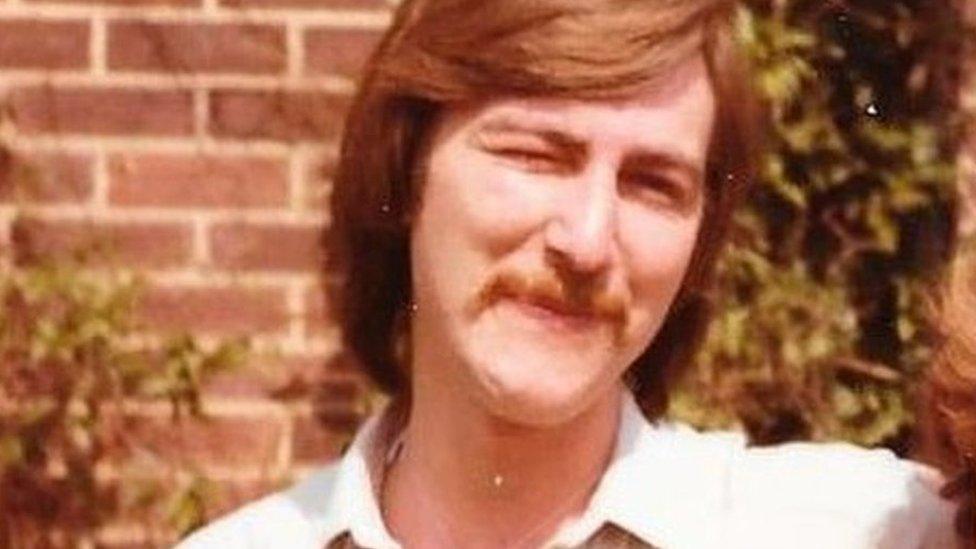Guildford pub bomb family seeks inquest delay amid funding plea
- Published
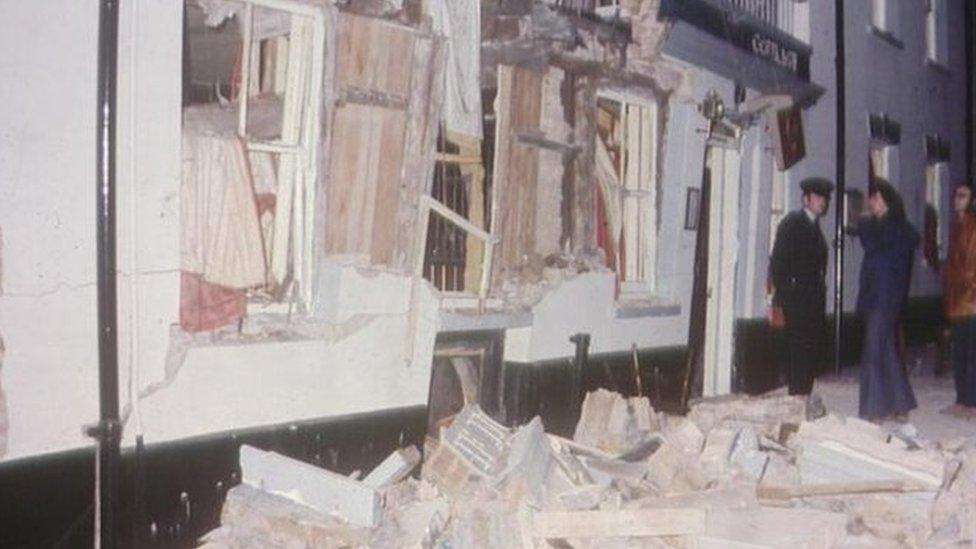
The first bomb at the Horse and Groom killed five people
The family of a woman killed in an IRA bomb in 1974 has asked a coroner to delay her inquest while they seek government funds to pay lawyers.
Ann Hamilton, 19, was one of five who died in Guildford, but legal aid for a resumed inquest has been refused to her family who said she had been let down.
After a select committee said relatives should be supported, family lawyers KRW Law made a fresh request for funding.
The Ministry of Justice said it was considering committee recommendations.
Two police forces, the Ministry of Defence (MoD) and the coroner have barristers in the inquest, but the Hamilton family does not.
Cassandra Hamilton said her sister had been a British soldier and asked why other government bodies such as the Army or MoD had not fought for her, by providing support.
She said: "We have very little compared to all the big people - we are very much little fish in a big pond."

Caroline Slater, 18, Ann Hamilton, 19, William Forsyth, 18, John Hunter, 17, and plasterer Paul Craig, 21, died in the first explosion at the Horse and Groom
Ann was among four soldiers and a civilian who died in the attacks at the Horse and Groom and Seven Stars pubs, that also left 65 injured. Eleven people - the Guildford Four and Maguire Seven - were wrongly convicted.
The government has previously said that coroners could ask questions for families but Ms Hamilton said: "We have built up a rapport with KRW and can speak openly and freely.
"We have never spoken to the coroner. He doesn't know how strongly we feel. He's never been there when we've broken down."
Ms Hamilton became upset as she told the BBC how all the family's relationships had been affected by Ann's death.
"I was two when she died and I never knew her," she said. "With my older sister, there were only 18 months between her and Ann. She missed the sister she knew and I missed the sister I never got to meet.
"My daughter never got to meet Ann and my sister never met her.
"My mum and dad missed watching one daughter grow up, missed giving her away, watching her get married. She might have had kids.
"Why should my sister's death be put down to money?
"That's wrong - how we can't get justice."

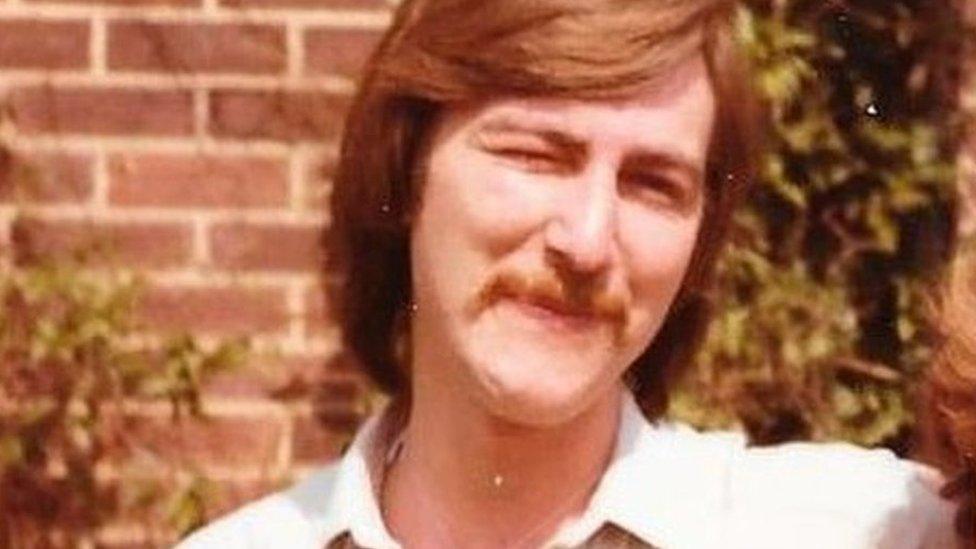
Reporter Rob King, who went on to work for national newspapers, claimed discrepancies in timings over the bombs
Unanswered questions
Ms Hamilton listed some of the questions the family hoped the inquest would answer:
Why events were reported differently at the time to what actually took place
Why one witness had provided different timings for the explosions
Why the Guildford Four were arrested and jailed if there was not enough evidence
Why her sister's barracks were not on lockdown after a reported IRA attack at a local barracks

She said: "I've nothing against the police force. They did a wonderful job, but we need answers - not just 'why that place, why that night'."
Ms Hamilton said her parents, who were originally from Belfast, had moved the family to England during the Northern Ireland conflict to be safe.
But she said her sister came home one day and told her family she wanted to be a soldier.
Ms Hamilton said: "Dad was dead against it, and then 18 months after Ann got killed, my dad died of a broken heart.
"He felt he'd failed by bringing her over here. He blamed himself."
She said the trauma had stayed with the family, adding: "All it takes is one song on the radio or you looking through photo albums - birthdays, everything - and it just doesn't go away."
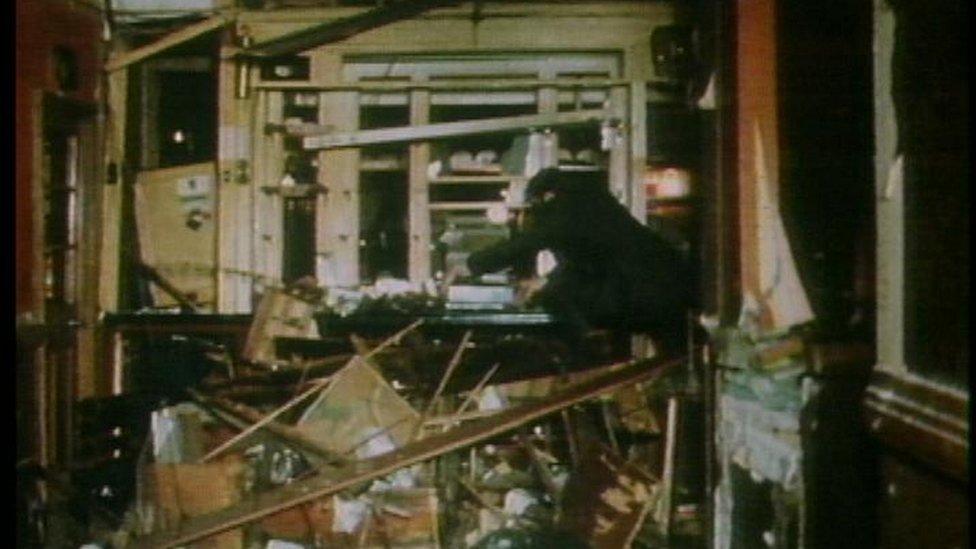
A second bomb went off at the Seven Stars pub that night
The Hamiltons have not attended any pre-inquest reviews (PIRs) but did book accommodation and transport to be at the first hearing before it was postponed.
Ms Hamilton, who works in a school, said she had hoped the full hearing would take place during the summer holidays, adding: "I would be there like a shot."
The full hearing is currently scheduled for next March, although KRW Law have asked that the next PIR in July is moved to October, pending a government decision on funding.
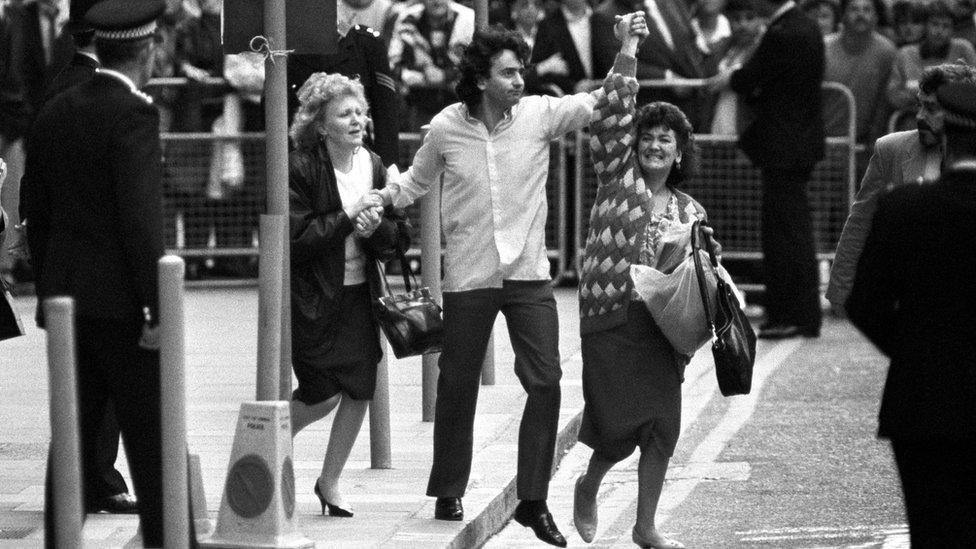
Eleven people - including Guildford Four man Gerry Conlon - were wrongly convicted
Christopher Stanley, from KRW Law, said the Justice select committee in May made its view clear - that there must be parity in the public funding of complex inquests.
The report recommended, external: "The Ministry of Justice should by 1 October 2021, for all inquests where public authorities are legally represented, make sure that non-means tested legal aid or other public funding for legal representation is also available for the people that have been bereaved."
Mr Stanley said it was not sustainable for KRW Law to continue representing the family without public funding and would be a possible breach of professional duty.
"Without the presence of the family of Ann Hamilton this inquest will be an incomplete investigation, despite the best intentions of the senior coroner," he said.
After the inquest resumed in 2019, senior coroner Richard Travers said he had written to the Legal Aid Agency (LAA) in support of the family's application for funding, but said it was not "within his gift" to grant it.
Following the select committee's report, a Ministry of Justice spokesman said: "We're determined that grieving families receive the right support when they are most in need, including coroner services which are consistent and delivered to the highest standard.
"We will carefully consider these recommendations and respond in due course."
Related topics
- Published19 May 2020
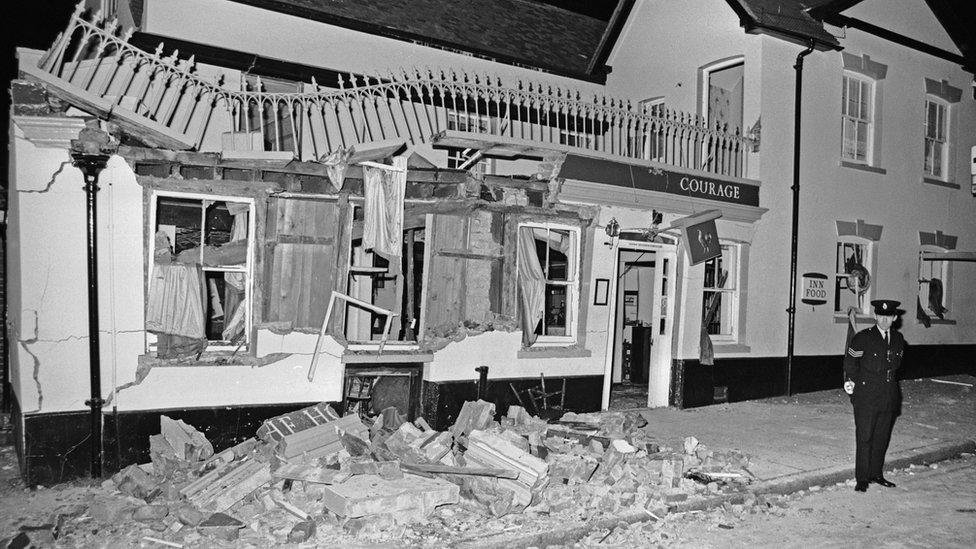
- Published18 December 2019

- Published27 August 2019

- Published23 January 2018
